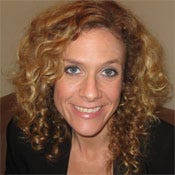5 Soft Skills Developers Need to Succeed5 Soft Skills Developers Need to Succeed
You can code your heart out but that will take your career only so far. One IT leader shares what he looks for in IT rising stars.


10 Tablets To Shake Up 2012
10 Tablets To Shake Up 2012 (click image for larger view and for slideshow)
As more IT professionals shift from being backroom techies to valuable business partners, the time is now for them to carefully hone their soft skills. After all, being the best programmer or smartest developer can only take an IT professional so far. Knowing how to communicate your needs, negotiate new policies, and lead fellow team members are "soft" skills that can ensure a healthy career trajectory.
Andrew Hull, VP of technology at Bnotions, a Toronto-based mobile app development company, comes across his fair share of seasoned developers. But while knowledge of development systems and a proficiency in functional programming languages can land you a job interview, Hull said the most compelling candidates boast the following five soft skills:
1. Ability to express strong opinion. Are you a fan of Python or a Ruby enthusiast? And how do you really feel about service-side scripting in Java? They're questions IT professionals often shy away from answering, especially during job interviews. But that's a mistake, according to Hull. "I find that IT professionals tend to be a little reluctant to answer these types of questions," he said. "They're afraid to give the wrong answer by saying they don't like something that we use so instead they say, 'Well, I'll use whatever.'"
[ Rather switch than grow old in IT? See 5 Ways To Escape A Career In IT. ]
This shrug of the shoulders can easily turn off an IT leader. Instead, Hull said, "The number-one thing I look for is someone who's opinionated. It's not enough to be familiar with seven types of technology. I really want to hear what you like or don't like about those technologies. That gives me a sense of your passion and your tolerance for mediocre work."
2. Curiosity. Life as an IT professional is serious business. But one soft skill developers shouldn't do without is a sense of playfulness, said Hull. "It's about being willing to try out new stuff on your own. I almost always ask my IT professionals what they're working on during their free time. I expect to hear about projects that don't have a defined goal; it's just about playing with new technology. IT professionals need to be able to keep themselves up-to-date and the only way they're going to get that is if they're genuinely curious about the next big thing."
3. Good writing skills. Writing great code is only part of being a skilled developer. Knowing how to draft technical materials such as system documentation, and being able to clearly respond to RFQs, are increasingly important soft skills IT professionals can't do without. "It's not uncommon now in developer circles to not be a great communicator but to be a really good writer," said Hull. But that's not all. With instant messaging and emails displacing verbal discourse, now more than ever, IT professionals need to know the fundamentals of grammar and syntax.
4. Flexibility. Although the "Mad Men" era placed a premium on loyalty and commitment, today's companies want their IT professionals to be quick on their feet and receptive to change. "With Web-based technology, every month something new comes out and you have to stay abreast of it," said Hull. Being able to pick up new programming languages, experiment with new technologies, and revamp best practices are "soft skills that are essential to getting your work done in an industry that shifts very quickly, especially with mobile applications," he said.
5. "Holistic" attitude. Many IT leaders hunt for professionals with specialized skills but Hull said there's something to be said for a techie with "a very holistic viewpoint of technology." Although in-depth knowledge of a particular programming language or system can enhance an IT shop, Hull said, "I don't like to see specialization where a techie just understands one piece of the overall structure and knows it really, really well. It's good to specialize but I want to make sure you can look at the overall structure and understand the writing and rebuilding of different applications."
Writing apps is expensive and complex. Cross-platform tools can help, but they're far from perfect. Also in the new, all-digital Develop Once, Run Everywhere? issue of information: Why the cloud will become a more accepted development environment. (Free with registration.)
Read more about:
2012About the Author
You May Also Like






